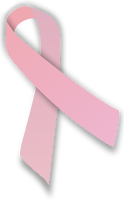Cancer News
From the American Cancer Society:
Nutrition and Physical Activity Guidelines for Cancer Prevention: Summary
"This document is a condensed version of the article describing the American Cancer Society (ACS) Nutrition and Physical Activity Guidelines, which are updated every 5 years. The guidelines were developed by the American Cancer Society 2006 Nutrition and Physical Activity Guidelines Advisory Committee and approved by the American Cancer Society National Board of Directors on May 19, 2006. The full article, written for heath care professionals, is published in the September/October 2006 issue of CA: A Cancer Journal for Clinicians, and is available for free online at:
http://caonline.amcancersoc.org/content/vol56/issue5/ "
Symptom Screening Advances Early Ovarian Cancer Detection
"Physicians generally consider ovarian cancer to be a “silent killer"...There is no effective screening test to detect early stage disease in the general population or even high-risk groups.
Recent evidence suggests that early-stage symptoms may be recognizable and could be used to develop a symptom index for early disease."
From MD Anderson:
Decline in Breast Cancer Cases Likely Linked to Reduced Use of Hormone Replacement
"But the researchers stress that because the analysis is based solely on population statistics, they cannot know for certain the reasons why incidence declined. "We have to sound a cautionary note because epidemiology can never prove causation," he says. They considered whether other effects may be involved (such as decreased use of screening mammography and changes in the use of anti-inflammatory agents, SERMs or statins) but only the potential impact of HRT was strong enough to explain the effect."
Allergy Drug Slows Pancreatic Tumor Growth in Preclinical Studies
"An anti-allergy drug in use for more than 40 years significantly reduced tumor growth in animal models of human
pancreatic cancer and also increased the effectiveness of standard chemotherapy, say researchers at The University of Texas M. D. Anderson Cancer Center.
In the Dec. 20 issue of the Journal of the National Cancer Institute, the investigators report that combining the drug, cromolyn, with chemotherapy was nearly three times better at retarding growth of pancreatic tumors in mice compared to the chemotherapy agent gemcitabine alone.
The finding may lead to a treatment advance for patients with pancreatic cancer, believed to be the most lethal of all cancers. More than 95% of patients diagnosed with the disease die from it, and half of those deaths occur in the first six months after diagnosis."
Study Finds Lapatinib Shows Promise as Therapy for Inflammatory Breast Cancer: First multi-center clinical trial conducted for women with this rare disease
"In the first multi-center and international clinical trial conducted to better understand the complexities of a rare, aggressive and often lethal form of
breast cancer, researchers have discovered that the experimental biological agent, lapatinib, successfully and specifically treats inflammatory breast cancer (IBC)."
From MacMillan Cancer Support:
Thousands of cancer patients lose their homes
Even though this survey was done in the UK, I think it's an important issue.
"New research out today shows one in seventeen (6%) people lose their home after being diagnosed with cancer and one in six (18%) have difficulties in keeping up with their mortgage or rental payments, according to Macmillan Cancer Support."
From UNC Chapel Hill Medical School:
Drug combination slows progression of treatment-resistant bone marrow cancer
"Combining a newly formulated drug with one that is already a standard treatment slows the progression of multiple myeloma, an advanced cancer of the bone marrow cells, according to a clinical trial led by a University of North Carolina at Chapel Hill School of Medicine researcher. "
From Google:
Cancer was the
#3 Top Search of 2006 in Google News, right under Paris Hilton and Orlando Bloom.
Cancer-related Websites:
I'm Too Young for This
Website for cancer survivors.
 On September 19th, over 60 breast cancer survivors* gathered at Cancer Services to celebrate Breast Cancer Awareness Month. Held in partnership with Woman’s Hospital, the attendees enjoyed lunch and the company of fellow survivors, caregivers, family and friends.
On September 19th, over 60 breast cancer survivors* gathered at Cancer Services to celebrate Breast Cancer Awareness Month. Held in partnership with Woman’s Hospital, the attendees enjoyed lunch and the company of fellow survivors, caregivers, family and friends.  Adult Programs Coordinator Natalie Depp added, “This was a great opportunity to show that at our support groups we don’t just talk about problems and sad emotions but share friendships and celebrate where our clients are in their cancer journey.”
Adult Programs Coordinator Natalie Depp added, “This was a great opportunity to show that at our support groups we don’t just talk about problems and sad emotions but share friendships and celebrate where our clients are in their cancer journey.” 




